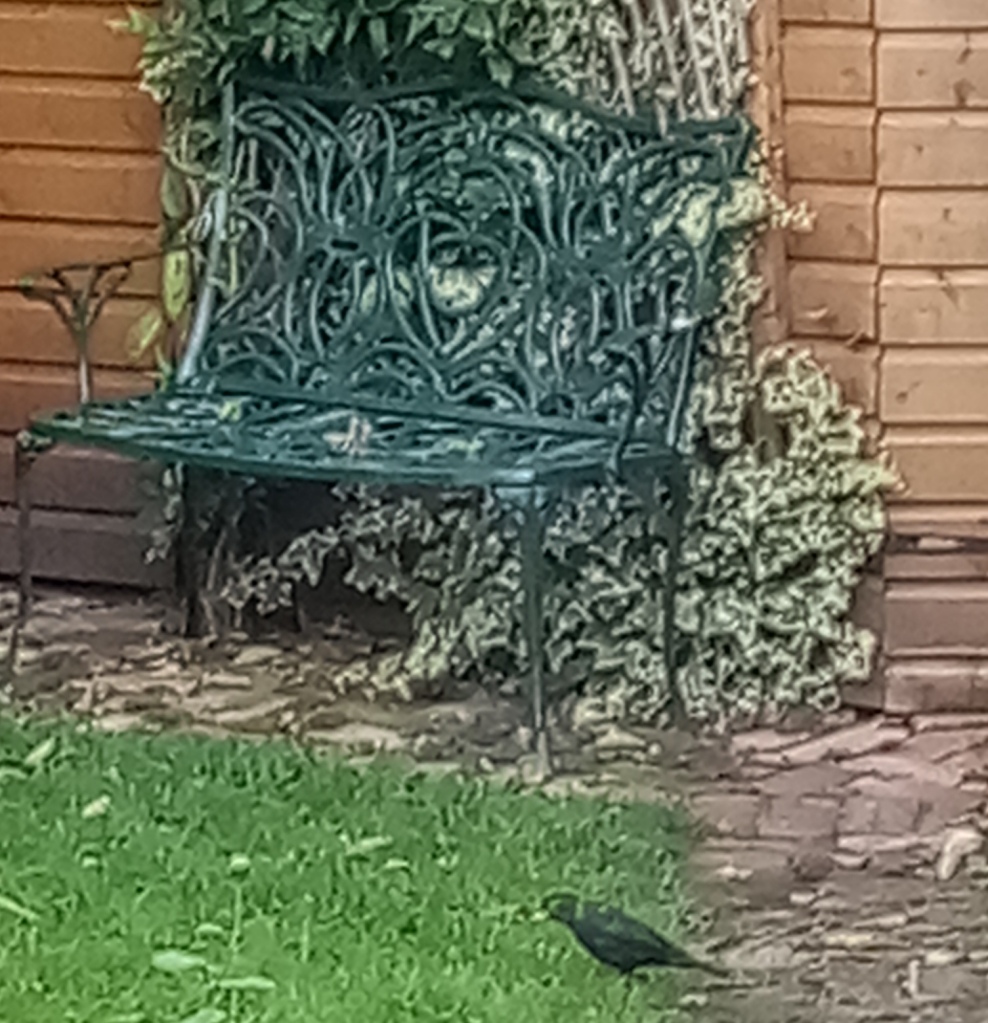
For a few weeks the birds in evidence in town have been jackdaws and other crows, gulls, including one that could not find its way out of St Thomas’ church, and members of the pigeon family. They do things their own way: last week I saw a half eggshell of a wood pigeon, but a town pigeon landed just in front of my bike to retrieve a lost stick needed for nest building on the old post office.
Precious little sight or sound of the song birds until this week. We were sitting under the trees at the Glebe when two robins began to sing quietly to each other just above our heads. Surely a couple. Then a happy surprise when our 4 year old blackbird reappeared. You may just distinguish his identifying white spots.
Happy Autumn!




